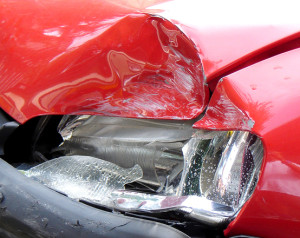Charlotte Personal Injury Attorney Matthew R. Arnold of Arnold & Smith, PLLC answers the question “What is partial versus total disability, and temporary versus permanent disability?”
The dangers of distracted driving are well known at this point. Commercials and public safety ads have repeated over and over how much texting can increase a person’s risk of being involved in a deadly car accident. Despite the apparent danger, millions of people continue to text behind the wheel every day, with alarming percentages of motorists admitting to reading and responding to text messages while driving.

Though we know what can happen if the person driving decides to send or read messages, is there anything that can be done to hold those on the other end of the conversation liable for their messages? Those texting drivers are referred to as remote texters, meaning individuals who are located elsewhere and engaged in an electronic conversation with a driver.
The issue was first tackled back in 2013 in a court case in New Jersey. That case goes back to a 2009 accident where a husband and wife were seriously injured after their motorcycle was hit by a distracted driver. The victims each lost their left legs all because the driver of the passing vehicle had been distracted after receiving a text message from his friend. The victims then sued not only the driver, but in a novel twist, his friend.
After debating the issue extensively, the court ultimately rejected the remote texter’s liability, saying that even though in this case the friend was fully aware the recipient was driving at the time, she was not liable under the common law. The Court decided that the driver was solely responsible for his decision to read and respond to text messages received while driving.
Though the Court rejected remote liability in this case, it did leave the door cracked. The Court referenced a prior U.S. Supreme Court case to point out that a remote texter could be liable in certain circumstances. For this to happen, the court said that the remote texter would need to be fully aware that the recipient would be distracted by a text and would be likely to respond immediately to any message, disregarding the safety of others in the process. Thus, liability for those sending text messages is possible, at least theoretically, and is something that may very well occur as the use of cellular technology while driving continues to increase.
If you or someone you know has any questions regarding potential personal injury claims, feel free to contact the experienced personal injury attorneys at Arnold & Smith, PLLC in Charlotte, North Carolina for a free consultation. Call toll free at (955) 370-2828 or click here for additional resources.
About the Author
Mr. Arnold was raised in Charlotte, where he graduated from Providence Senior High School. He attended Belmont Abbey College, where he graduated cum laude, before attending law school at the University of North Carolina at Chapel Hill on a full academic scholarship.
A board-certified specialist in the practice of Family Law, Mr. Arnold is admitted to practice in all state courts in North Carolina, in the United States Federal Court for the Western District of North Carolina, in the North Carolina Court of Appeals and Supreme Court, and in the Fourth Circuit United States Court of Appeals in Richmond, Virginia.
In his free time, Mr. Arnold enjoys golfing and spending time with his wife and three children.
Source:
http://www.abajournal.com/news/article/remote_texter_can_be_held_liable_for_distracted_drivers_crash
Image Credit:
http://www.freeimages.com/photo/broken-car-1240874
See Our Related Video from our YouTube channel:
https://www.youtube.com/user/ArnoldSmithPLLC/videos
See Our Related Blog Posts:

